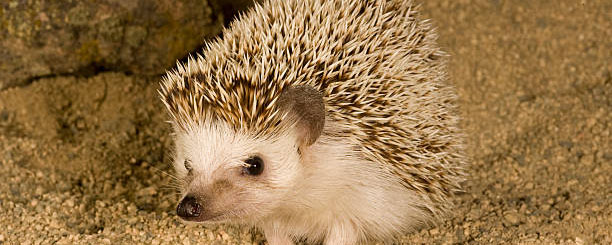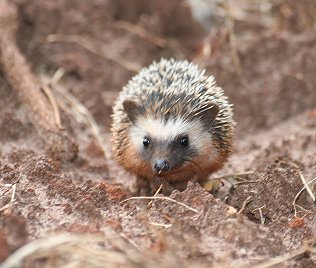- Find a Pet
- Advice and Welfare
- Ways to Give
- Get Involved
- What We Do
- Search
- My RSPCA
- Report a concern
- Gift in Wills
-
Colour modeVivid Calm
- Home
- Advice and welfare
- Pets
- Exotic pets
- African pygmy hedgehogs
African pygmy hedgehogs
African pygmy hedgehogs are solitary, wild animals who are nocturnal, meaning they're active at night. They have complex needs that can't be met in a typical home environment, so they don't make suitable pets.

Their natural habitat
The wild African pygmy hedgehog's natural habitat is the dry, grassy plains of West, Central and East Africa. African pygmy hedgehogs travel large distances in the wild – they need space to roam. Sadly, they're often kept in small cages which are unsuitable for this highly active species.
Diet
In the wild, African pygmy hedgehogs are natural omnivores eating spiders and insects, plants, and birds eggs.
African pygmy hedgehogs under the Animal Welfare Act
African pygmy hedgehogs (also known as the white-bellied or four-toed hedgehog) are growing in popularity but this doesn't mean they make good pets.
Unfortunately, it's currently legal to own an African pygmy hedgehog as a pet. However, under the Animal Welfare Act, owners must be able to meet the animal's welfare needs. This includes providing the animal with every opportunity to display normal behaviour such as foraging and roaming.
Here's why we can't fairly recommend keeping African pygmy hedgehogs as pets:
- the African pygmy hedgehog is a wild animal and, compared to some other species that are kept as pets, caring for them is very difficult
- African pygmy hedgehogs are naturally nocturnal and so must be left alone during the daytime. That means you'll only be able to interact with them during the night while they're awake. Of course, this means they'll also keep you up into the late hours!
-
African pygmy hedgehogs are solitary by nature. If you were to house two together, it's likely that they would fight
Sadly, many hedgehogs who are kept as pets are fed a diet too high in fat and don't get enough exercise, which can cause obesity and other health problems.
Captive African pygmy hedgehogs are also susceptible to various other health issues, such as tumours, heart disease, 'wobbly hedgehog syndrome', parasites, ringworm and salmonella. Caring for an African pygmy hedgehog can prove expensive and specialist vet insurance is needed to cover costs.
If you're looking for information on helping the African pygmy hedgehog's European cousin, read our advice on keeping garden hedgehogs safe and happy.




